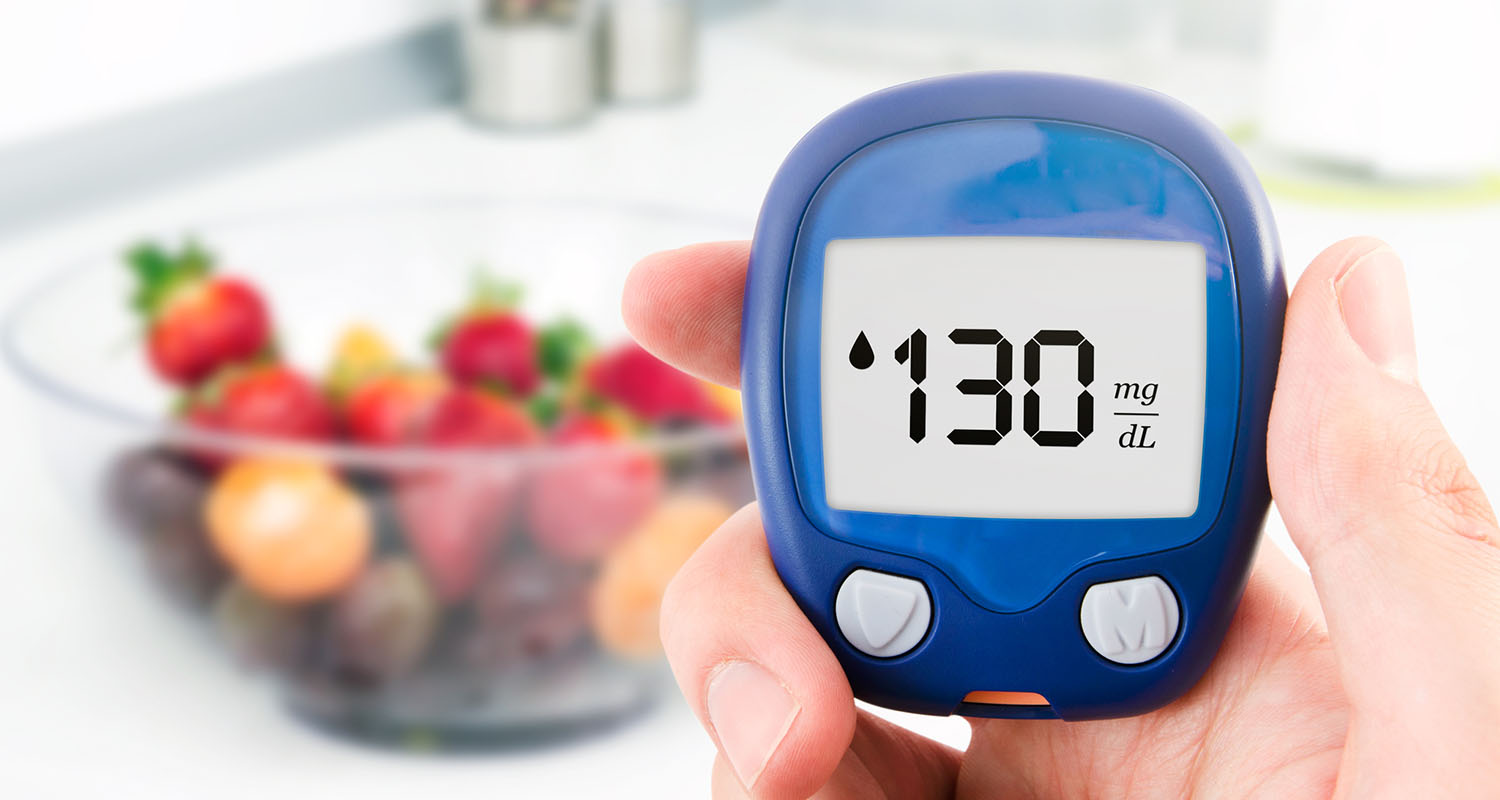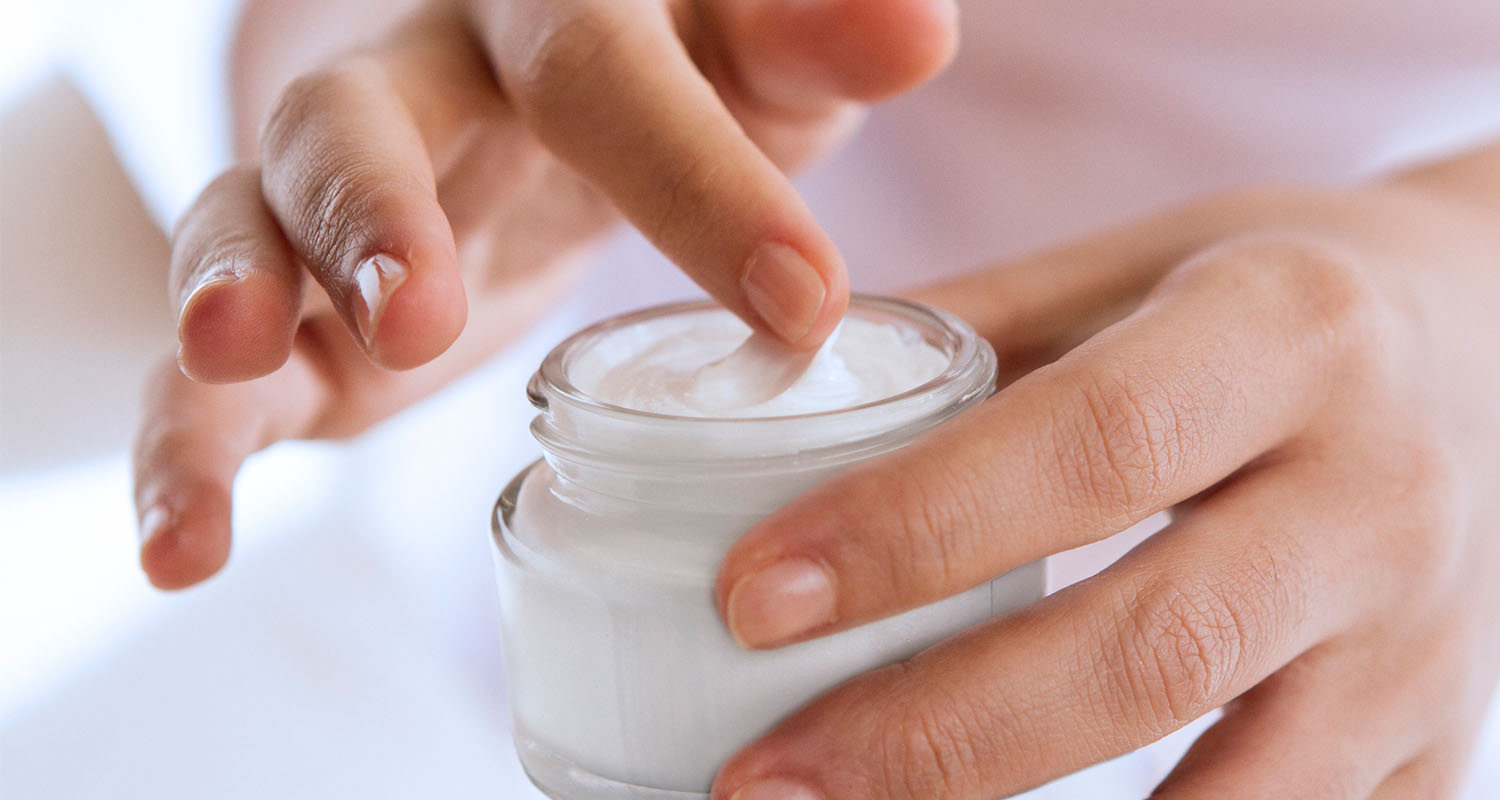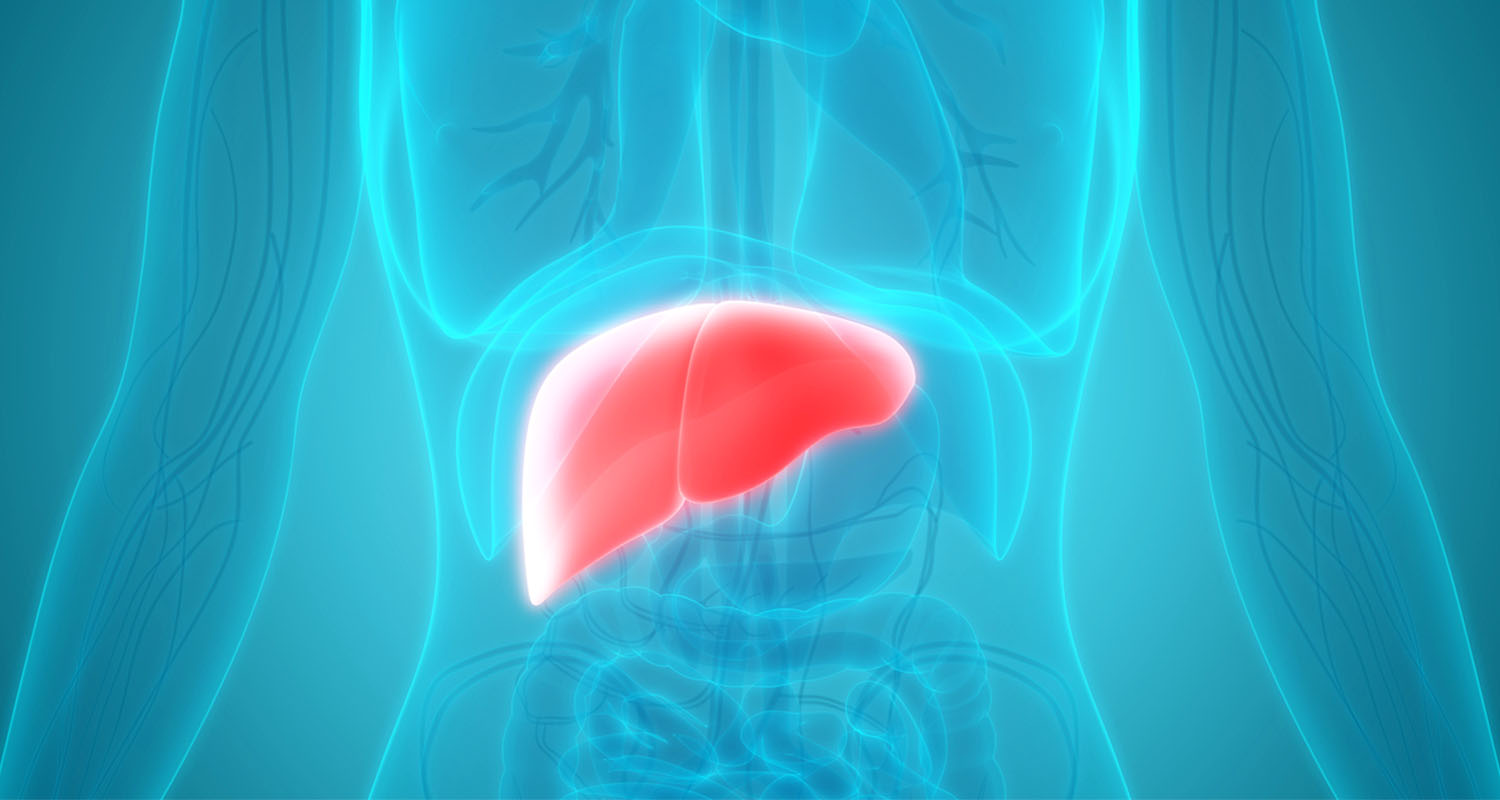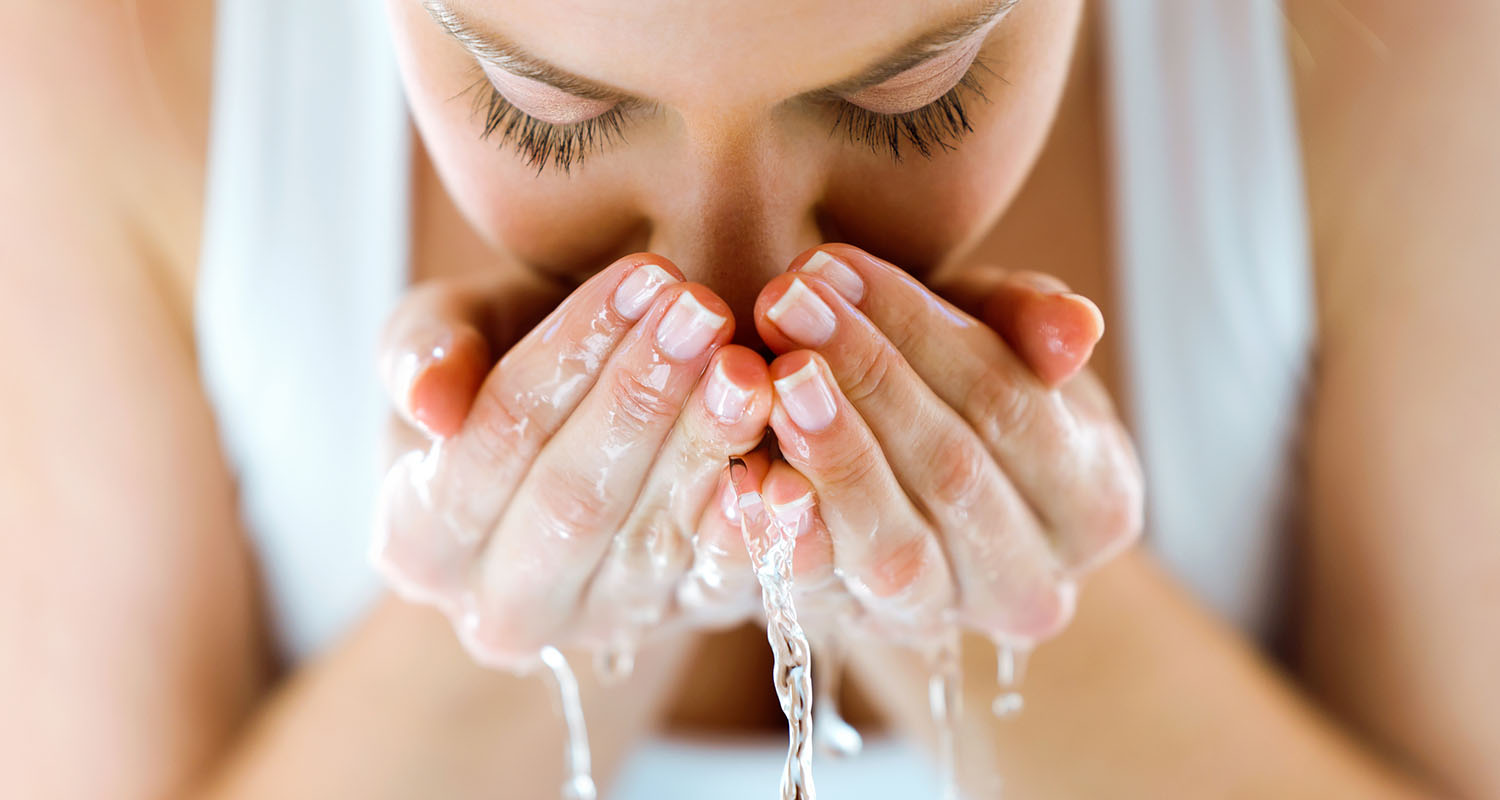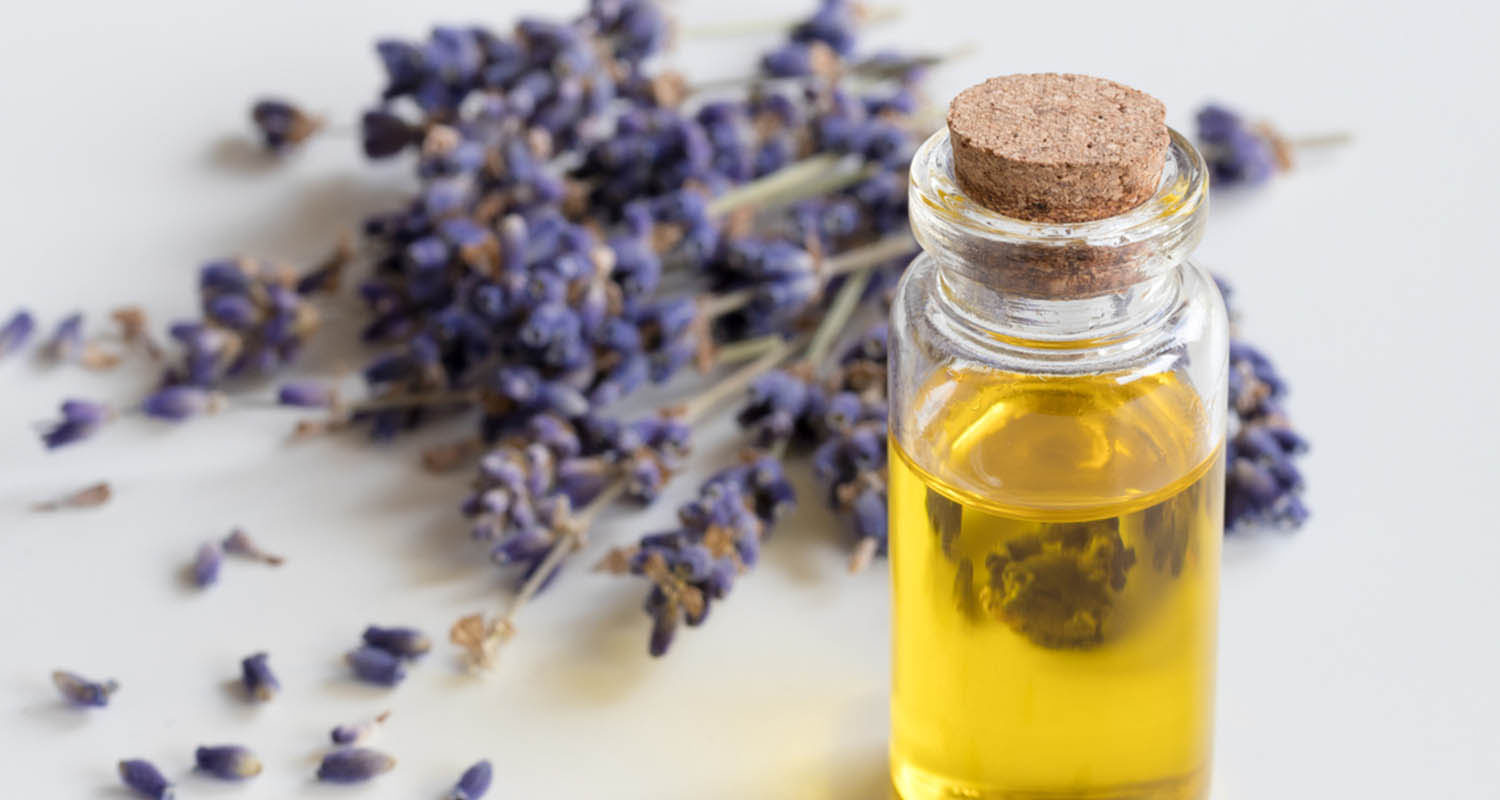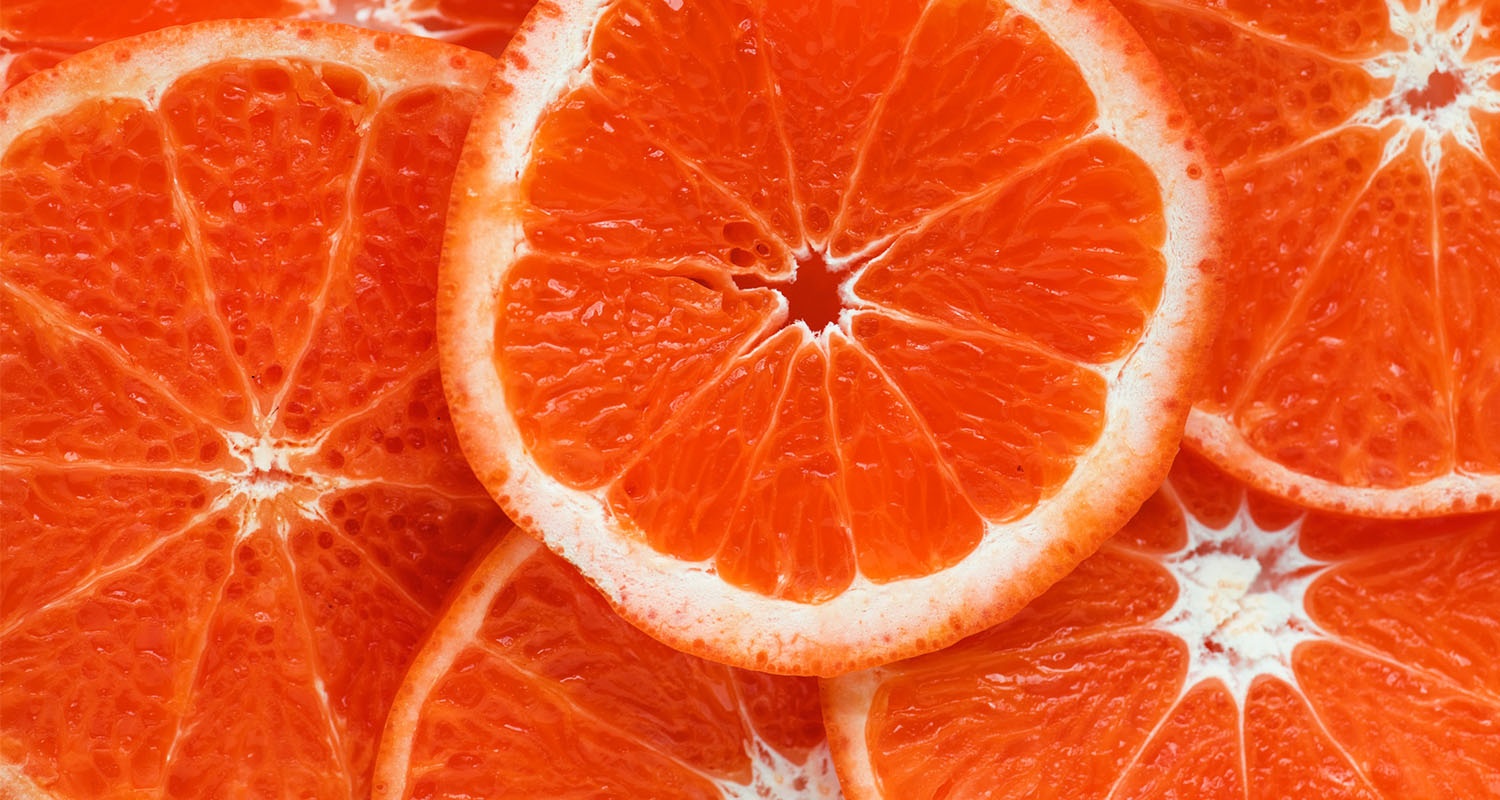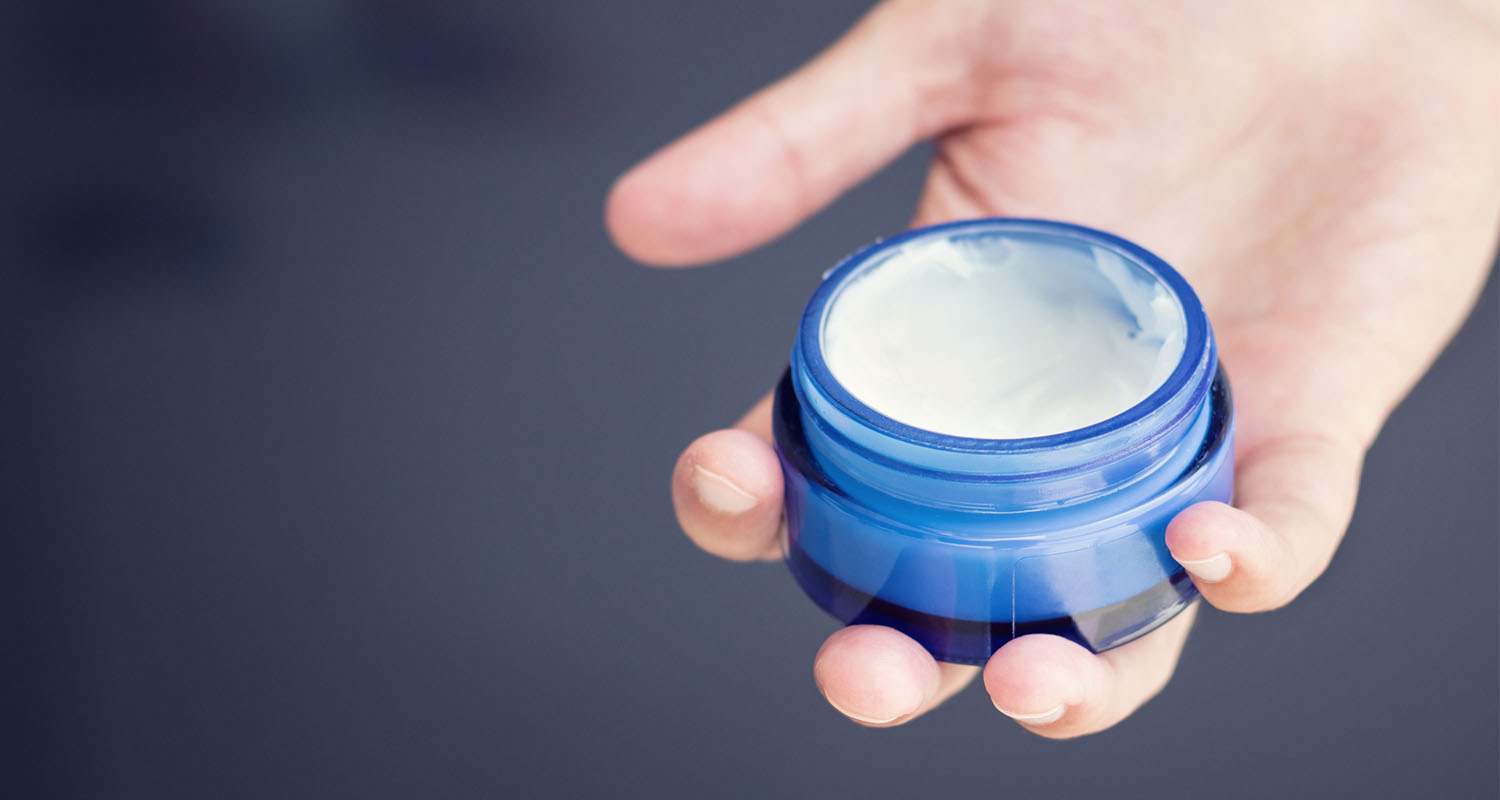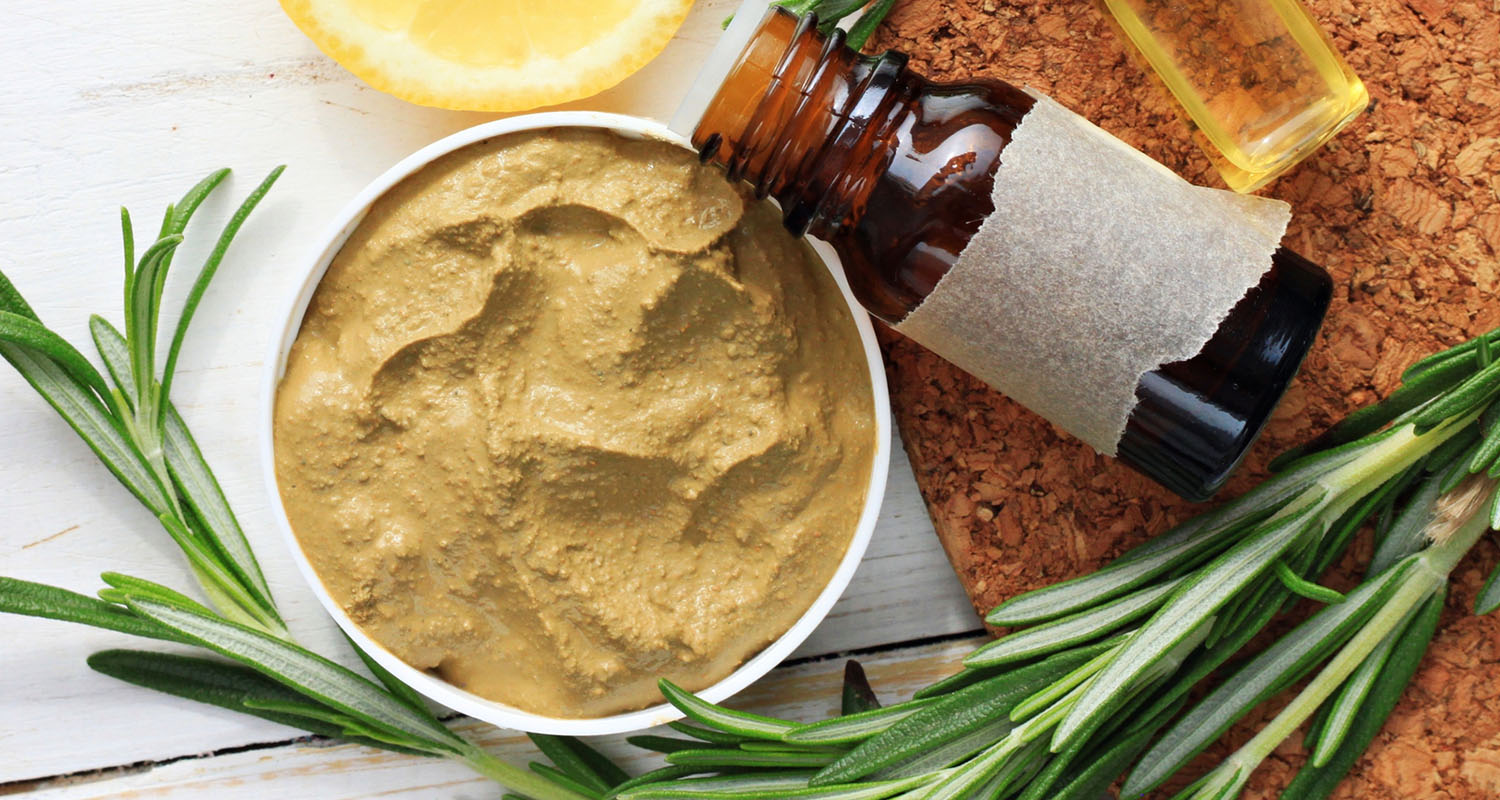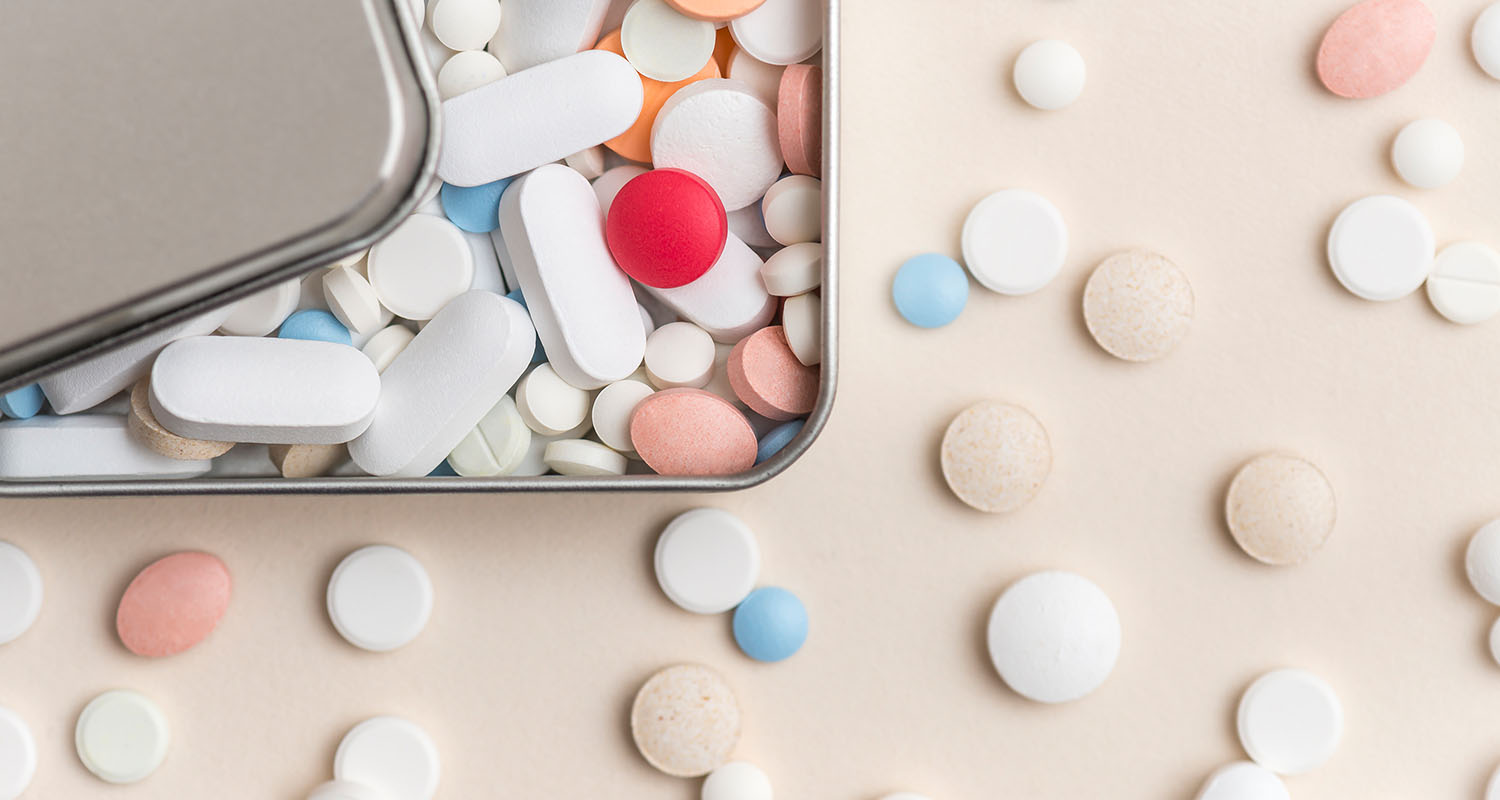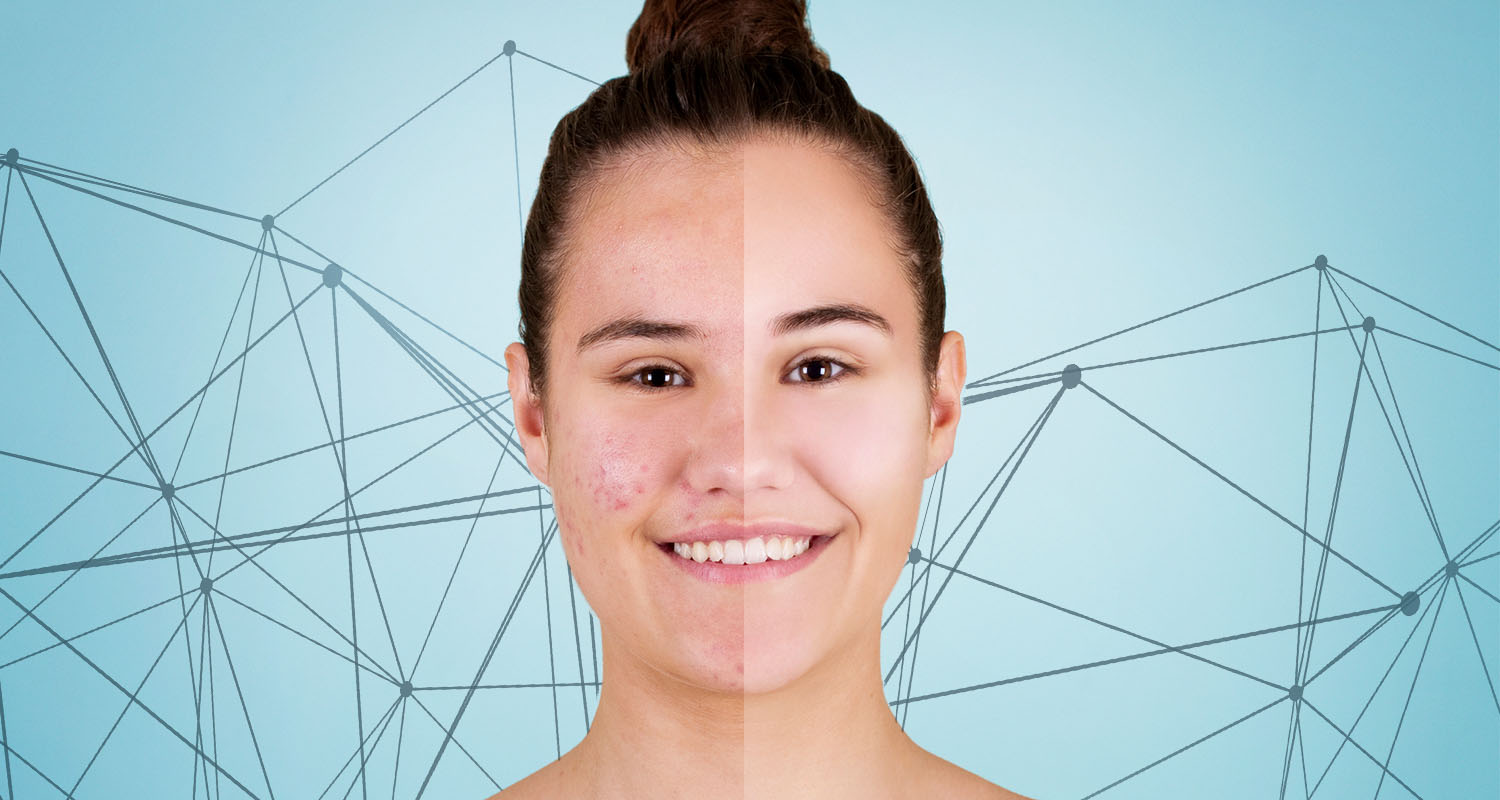
- Acne is the eighth most prevalent condition worldwide
- There are hundreds of causes of acne, the most common being food intolerances, the chemicals you use on your face, or a sluggish detox system
- Instead of treating the symptom (pesky pimples), get to the root cause to get rid of acne for good.
- The best ways to treat acne and clear your skin include addressing hormone imbalances, fixing a leaky gut, and cleaning your diet
- Keep reading for a sample non-toxic skincare routine
When you have acne, it feels like you’re the only person in the world without a clear complexion. However, according to Bulletproof Radio podcast guest Trevor Cates, (iTunes) naturopathic doctor and author of “Clean Skin from Within,” acne is the eighth most prevalent condition worldwide. It’s also, according to the American Academy of Dermatology, the most common skin condition in the U.S., with adult cases of acne on the rise, despite the myriad potions and lotions promising clear, radiant skin. What gives? “With any skin issue, it’s a sign that something’s out of balance in the body. We need to find out what that root cause is. It’s not a matter of just treating the acne or covering it up,” Cates explains.
A lot of acne treatments today don’t address the reasons behind your acne. The good news is, you can cure these body imbalances with a few lifestyle tweaks that don’t involve hardcore, gut-wrecking prescriptions. Keep reading to learn the most common reasons for acne and the most gentle and effective ways to deal with it.
Why you have acne
There are a zillion reasons why you could have acne and skin problems. Most people fall under one or more of these categories.
Dairy protein intolerance and breakouts
Researchers found a high correlation between dairy consumption, especially skim milk, and teenage acne. One reason why is that conventional dairy products contain enough hormones to have an effect on your body. You can see the effects of excess hormones on your skin.
Skin inflammation from insulin resistance
Insulin sensitivity or resistance describes how efficiently your body is able to get energy out of sugar and carbs. Sensitivity is good, insulin resistance means that the cell fuel delivery guy knocks on the door and nobody answers. Your cells do not open up to receive glucose, so sugar stays in the bloodstream, causing inflammation.
If you’re insulin resistant, you’re probably carrying excess weight and having negative effects from blood sugar fluctuations. Other signs of insulin resistance include increased thirst, feeling cranky in between meals, fatigue, even blurred vision.
Researchers have connected the dots between acne and insulin resistance, though there’s plenty of room for more research on the topic to fully understand it. Since there are so many benefits to cutting sugar and lowering your carb intake, you may as well see if those things improve your acne.
Irritation from harsh skincare
If this is your first experience with acne, you might be tempted to go nuclear on it, and wind up buying the most drying, highest-strength stuff on the shelf. Though intuitively it feels like the right move, there are a few problems with that strategy.
First, your skin has its own microbiome, an ecosystem of microscopic organisms living on its surface. A healthy level of oil on your skin helps support beneficial microorganisms that keep your skin clear, calm, and happy.
Second, when your skin oils are in balance, your skin’s oil production is a supply and demand system. If it’s dry, you make more oil. Oily, you make less. Things like hormones, insulin, and toxins can disrupt the balance. If you intentionally dry out your skin, thinking that removing oil is good for you, your skin will respond by ramping up oil production. Then you get more acne. If you’ve ever broken out after a really intense exfoliation regimen, you likely went too hard on your skin. That’s your complexion trying to restore order after disrupting the skin’s lipid barrier.
Same goes for harsh chemicals. Your skin may react to products you use, giving you acne, or something that looks like acne but is actually irritation. Avoid heavy fragrances, strong astringents, allergens, and other irritants to keep skin smooth.
Hormone imbalances and acne
Your acne may signal a hormone imbalance if:
- You get acne along your jawline, chin, or cheeks
- You’re a woman and you break out around the same time every month
- The acne is deep and inflamed
If you and your doc agree, be on alert. It’s common for doctors to prescribe hormonal birth control to hormonal acne sufferers. It may clear your skin, but birth control does not balance your hormones, and the havoc it causes on your body isn’t worth it. Here are some ways to balance your hormones naturally.
Related: Diindolylmethane (DIM): the Wonder Pill for Hormonal Acne
Sluggish detox systems or toxic burden
Your sweat, digestion, urinary system, and especially liver all play a role in how your body deals with everyday toxin exposure. When one system slows down or gets overburdened, the other systems jump in to pick up the slack. It’s a beautiful arrangement when toxin levels are manageable and no system is severely compromised.
When other systems have too many toxins to deal with, or a major slowdown of other systems (especially the liver), the extra toxins come out of your skin. On the way out, these toxins (which include excess hormones) can cause damage and inflammation to surrounding cells, and that’s what you see as acne, rashes, and redness.
How to treat acne
As a major detox mechanism, your skin takes a beating from the inside out. As a defense mechanism from the elements, your skin also takes a beating from the outside in. So, that’s how to approach skincare. Address your inner systems that might not be working, while treating your skin topically.
Topical acne treatment: sample skincare routine for acne
Cleanse: morning and evening
Use a gentle cleanser that retains your skin’s moisture while washing away the elements. If you’re not sure how to choose, this article has some suggestions for non-toxic skincare products that won’t mess with hormones.
Exfoliate: daily, then a few times per week
While you’re treating your acne, you’ll want to get rid of those layers of dead cells that aren’t turning over quickly enough to open up your pores.
Avoid harsh scrubs. Those can create micro-tears in your cells, which allow bacteria to spread and make your acne redder and angrier. Instead, alternate:
- A retinol cream or a lotion or serum containing bakuchiol, a natural retinoid
- A lotion or serum containing lactic acid
These gently slough off the old, damaged cells and make way for your pores to release the gunk that’s causing your acne. When things start to improve, you may choose to continue exfoliating daily, or you may back off to a few times per week.
Vitamin C serum: 1-2 applications per day after cleansing or exfoliation
Vitamin C is a powerful antioxidant that fights free radical damage on the skin. The antioxidant action helps your skin in three ways. First, researchers have linked acne with a high proportion of free radicals, so vitamin C will snap them up at the source. Second, vitamin C reduces the appearance of scarring, dark spots and rough spots that acne may have left behind.
Since vitamin C serum reduces the signs of aging anyway, it makes sense to add it to your routine. Pick one that contains vitamin C, vitamin E, and ferulic acid. Vitamins C and E together have a good amount of research behind them, and ferulic acid stabilizes the mix.
Moisturize: morning and evening after exfoliation or serum
You might think that drying out your acne will get rid of it. That will backfire. Also, don’t go oil-free just because you have acne. Much like the ill-informed low-fat craze of the ‘80s that made everyone fat and sick, oil-free products aren’t necessarily better for your skin. If you’re over-drying your skin, your skin will produce extra oil to compensate, and you’ll be worse off than you started.
You’ll see quick improvement with a good moisturizer. The most important quality of a moisturizer is that it’s non-toxic. Franken-creams can contain hormone disruptors that will make your acne worse. Check your choices against the EWG Skin Deep database.
You’ll also want to look for moisturizers containing lightweight non-comedogenic (not likely to clog pores) oils. Oily skin responds well to oils like olive, grapeseed, hazlenut, argan, and jojoba oils, among others. While extra virgin coconut oil may be too heavy to use on your face, fractionated coconut generally absorbs quickly and leaves skin hydrated and non-greasy.
Since you’re not drinking water while you’re sleeping, you’ll want a heavier moisturizing cream at night to keep your skin cells hydrated until you take your first sip of water in the morning.
Bentonite clay mask: daily for 5-7 days, then 1-3 times per week (after cleansing, before serum)
Bentonite clay is an adsorbent. That’s not a typo. Absorbing a substance means drawing the substance into itself. To adsorb a substance means the substance sticks to it.
Bentonite clay has a strong negative charge, which means it will pull out positively charged ions. Impurities on the skin tend to have positive charges, so if you smear on a cheap and simple bentonite clay mask, it will draw out and bind impurities as it dries.
DIY bentonite clay mask
- 1 tbsp bentonite clay
- Water, rose water, or apple cider vinegar
- 2 plastic or wooden spoons — bentonite clay is strong enough to draw out metal ions from a metal spoon, and you don’t want that on your skin
- Put 1 Tbsp bentonite clay into a coffee mug
- One spoonful at a time, add water, rose water, or apple cider vinegar
- Mix with the other spoon
- Repeat until your mixture takes on a pudding consistency. Optional: add a few drops of an ultra-lightweight oil, like MCT or argan oil
- Let stand for a minute or two, then apply to face
- Leave it on for at least 20 minutes. Rinse.
Repeat daily for a week or so while you’re detoxing, 1-2 times per week for maintenance. You’ll find that bentonite clay doesn’t strip your moisture and leaves your skin feeling clean, not dry and tight.
Treating acne from the inside out
Fix your gut
“One of the big root causes behind acne has to do with the gut, the gut microbiome,” says Cates. She advocates addressing gut imbalances that create problems in your whole body, the most noticeable place being the skin.
Here are some ways to address your gut microbiome. Which brings us to…
Diet
There’s a lot of research linking dairy protein consumption and acne. Another big one is sugar.
Cates explains, “If you eat a lot of sugar or foods that turn to sugar, things that are high on the glycemic index, they’re going to increase your blood sugar, which causes a spike in the hormone, insulin. That increase actually triggers excess sebum production, the oils in our skin, plus it increases androgen activity. That combination is one of the big triggers for acne.”
Aside from insulin, too much sugar wrecks your gut, and a lot of skin problems originate in the gut. There’s no shortage of reasons to stop eating sugar.
The Bulletproof Diet Roadmap shows you how to eat to keep your inflammation down. Your skin will thank you.
Address hormone imbalances
Acne is a hallmark of hormone imbalance. Since there are so many causes of estrogen dominance and other endocrine imbalances, you’ll want to work with a functional medicine doctor on this one. Functional medicine aims to uncover the root cause of a problem, while conventional medicine most often treats symptoms.
Hormones are complicated business, so you should dig as deep as you and your doctor can to address the chain reaction that leads to hormone problems and hormonal acne.
Hydrate, then hydrate more
Drink as much water as you think you need, then double that. Your urinary system is a detox machine that runs constantly as long as it has enough water to flow freely, picking up impurities along the way. Water also leaves your body as sweat, which will sweep toxins away much more efficiently the more you dilute them. While you’re at it, exercise and sauna help you sweat nasty things out, too.
What not to do for acne
Don’t pop your pimples
Just don’t. Your zits will look ten times more noticeable after you’ve messed with them.
Don’t take antibiotics as a first line of action
If you’re looking into prescriptions, you’re probably pretty frustrated with your acne at this point. When you consider antibiotics, you have to weigh the pros with the cons to see if antibiotics are worth it. Is it a short-term solution, and will you have to keep repeating antibiotics? Is it worth wrecking your gut, knowing that there’s an intricate relationship between your skin and your gut?
You can opt for topical antibiotics, which are certainly better than pills, but keep in mind that your skin has a microbiome that antibiotics will disrupt.
It takes patience, but it might be a better option to support your immune system and address imbalances first.
Don’t take an isotretinoin prescription without trying everything else first (everything)
Sure, desperate times call for desperate measures. But medicines containing isotretinoin not only mask the true issue — they can cause serious lifelong side effects like:
- Crohn’s disease
- Depression and suicide
- Anxiety
- Severe birth defects if you take it while pregnant
The most well-known isotretinoin brand, Accutane®, is no longer available, but doctors still prescribe other isotretinoin brands with the same set of risks.
Isotretinoin permanently affects the communication lines in your hypothalamic-pituitary-adrenal axis which is “mission control” for your stress response, among countless other functions.
This is one of those times when even if your doctor extensively counsels you on this medication, you probably still will not cover the magnitude of long-term damage it can cause. Tread lightly. Get a second, third, and fourth opinion if you have to.
Don’t treat only pimples
Pimples aren’t simply a skin condition. They’re a signal that something else is going on in your body. Keep asking your doctor, “what caused that?” until you have a handle on the root cause. If you treat acne without treating the source, it won’t go away. Sure, use what makes sense to get your skin looking better, but keep digging for the true reason.
You’re not vain for wanting clear skin. Your appearance affects your job, your interactions, and your confidence. More importantly, your skin indicates how your body is working. Look at your skin as a main line of communication between the inside and the outside of your body.

